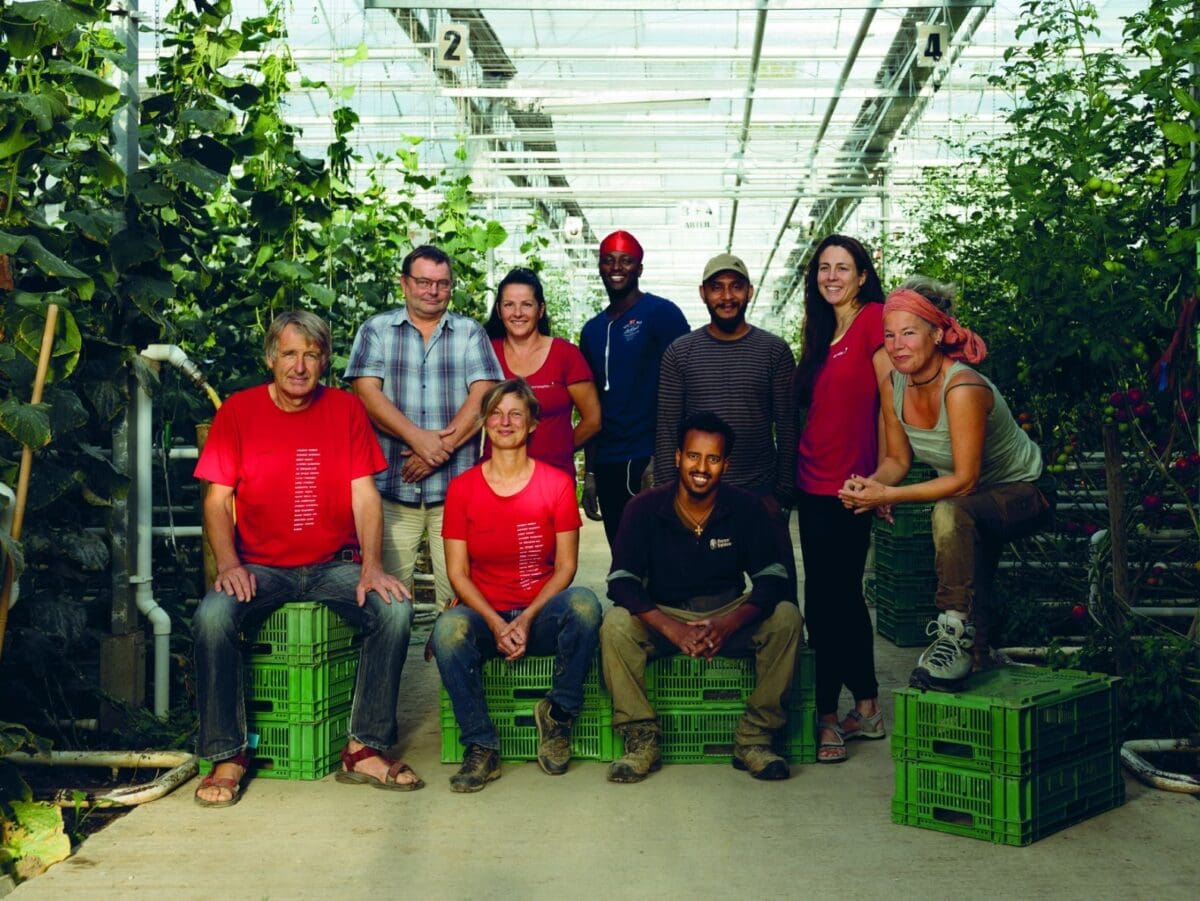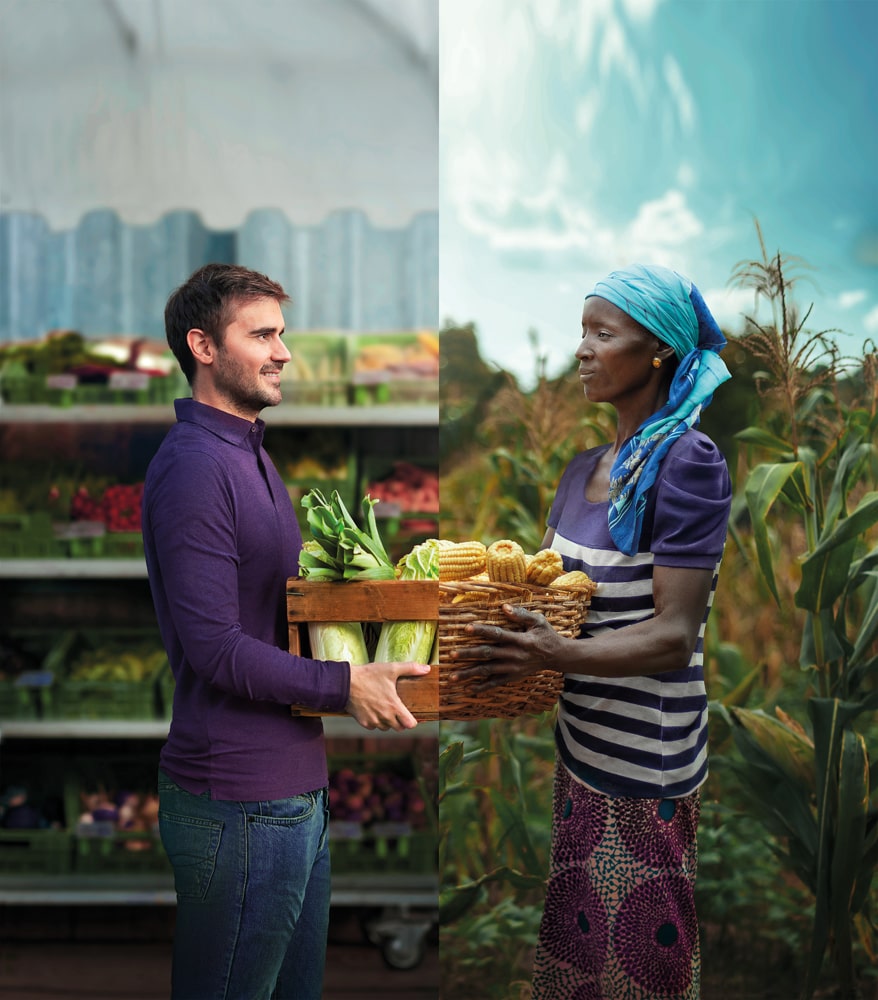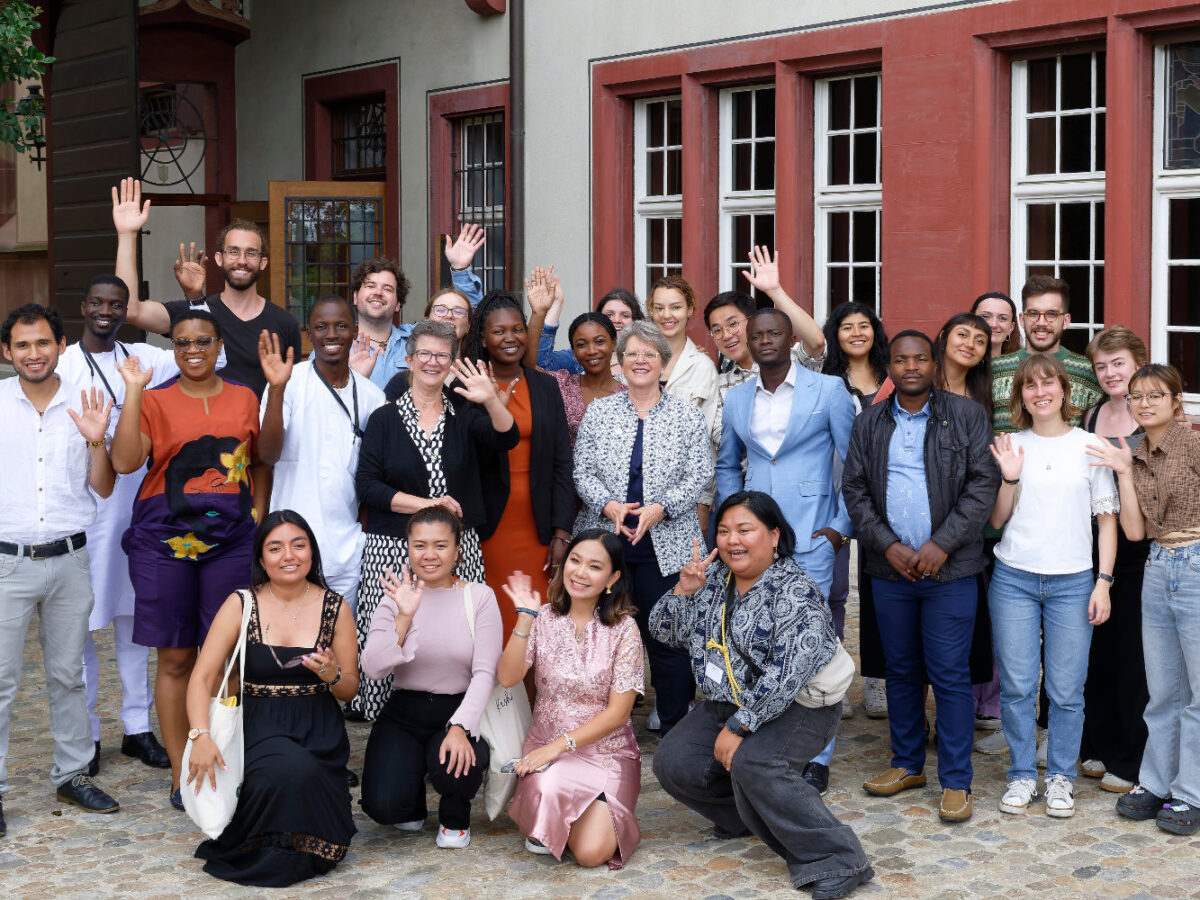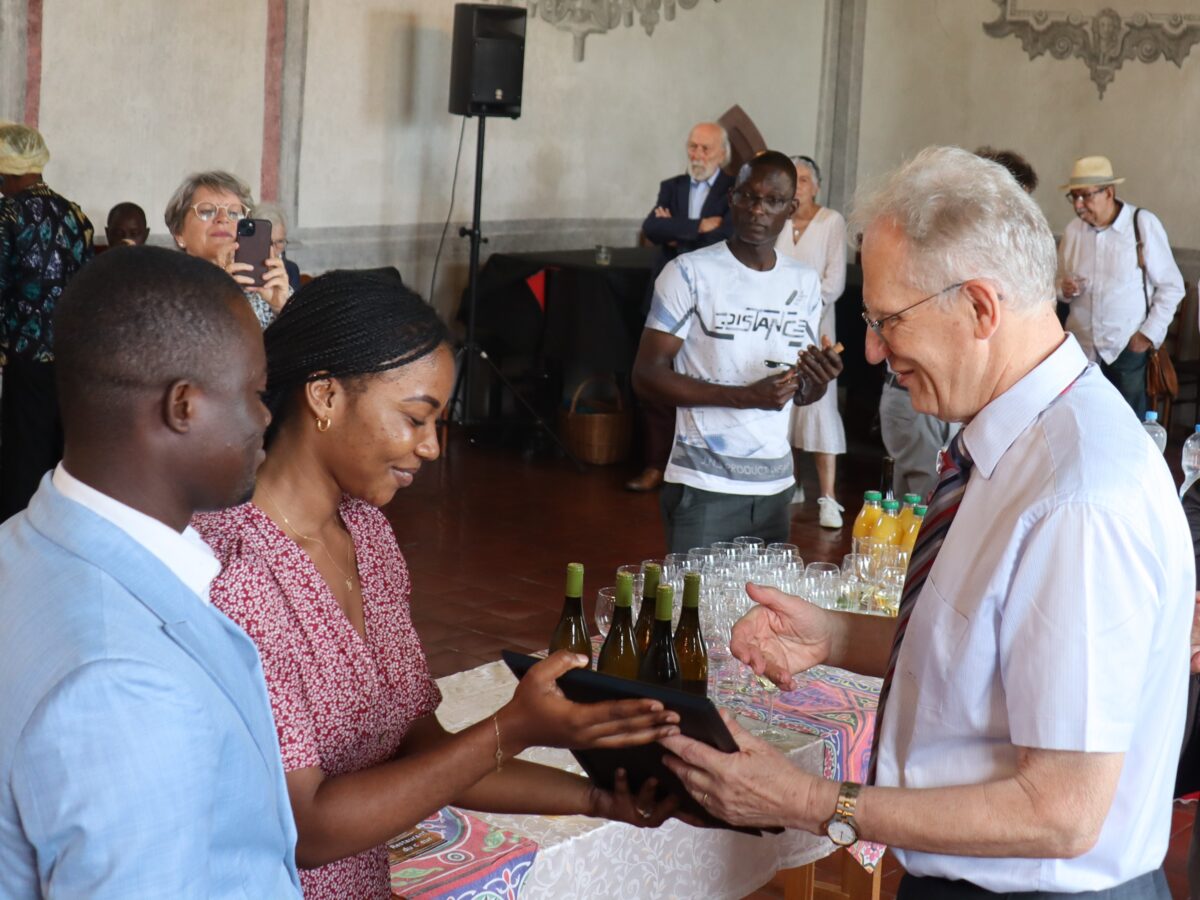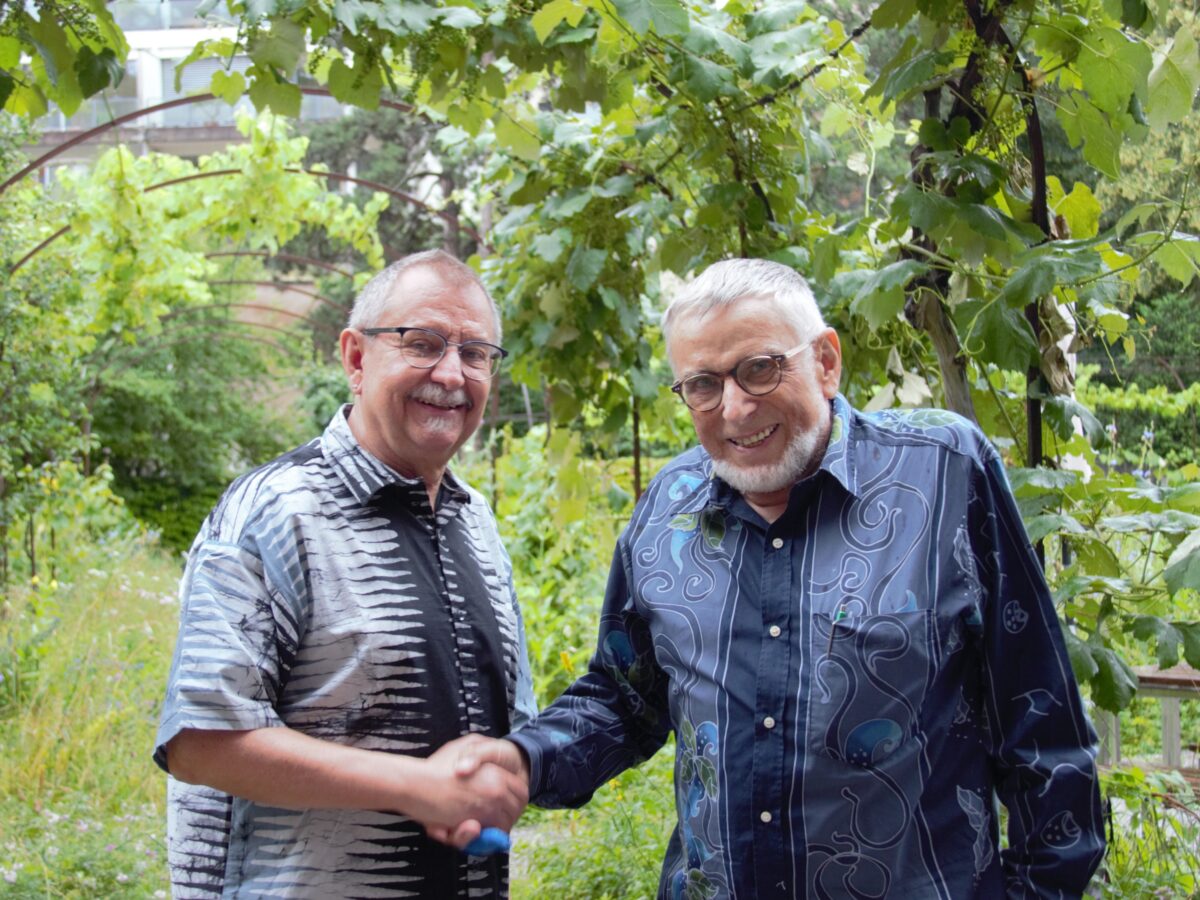Reconciling economic, ecological and social concerns is one of the great challenges of our time. Human nutrition and thus the food industry, and sustainable agriculture in particular, have a central role to play here. How can healthy food be produced in an environmentally compatible manner under changing climatic conditions and thus conserve resources? How can we ourselves contribute to a more sustainable food system? We interviewed farmer Nicole Tanner from Birsmattehof, an organic farm in Therwil near Basel, about these questions. On the Birsmattehof, vegetables have been grown according to the Bio Suisse guidelines since 1981. Seasonally appropriate and diverse.
The interview is part of our information on the 2023 campaign
Ms. Tanner, what does sustainable agriculture in Switzerland encompass?
For me, sustainable agriculture is an agricultural practice that we will still be able to practice 100 years from now and that ensures the long-term preservation of natural fertility. An agriculture that is adapted to the region and its function as a habitat for people and their food. Action is needed to ensure that more farms operate sustainably. There is already good organic practice among organic farms, but what percentage of total production does this represent? 10-20 percent, depending on whether grains, vegetables or animal products are produced. Production must be appropriate to the site. For me, feed imports for meat production are not part of this. Trade and exchange must take place where it makes sense for sustainable production. Consumers must make their contribution, for example by refraining from buying products that are brought in using expensive refrigeration techniques and long transport routes. And they must not only look at the purchase, they would also have to use the short way to the purchase locally without a car.
How important is certification by an organic label, keyword "trust"?
The label, in which one can have confidence, makes it easier for me to make a decision when purchasing. The label is my partner who takes a closer look at how the transport route is, whether and which pesticides or fertilizers are used, and whether the soil is permanently preserved as a natural basis for production. With the Bio Suisse bud, we have a label in Switzerland in which I have great confidence. It is quite clear that there is never one hundred percent certainty, and it is also important to continue developing a label. But we are on the right track.
How important is education for you as producers and for the staff on your farm in order to react to climatic changes in a foresighted and correct way?
We talk about sustainability and organic labels in food. We are dealing with very diversified value chains in nutrition today. Education is important in terms of understanding the causes of, for example, climate change within the food system. For us as farmers, education is important so that you can classify your farming practices, the way we deal with the soil and the food we produce, the food we handle. We need to understand where to compromise and the consequences of our intervention in nature. How can we make it even better? That's an educational goal.
In Nigeria, we aim to empower women, improve their knowledge in agroecology - to what extent is gender equity an issue in your operation?
We have a challenge that we are not alone in, and that is finding knowledgeable female employees who want to get involved in agriculture, in this industry. We are not the industry with the top wages. Within Birsmattehof we pay attention to gender equality, even though we are different. We offer a lot of part-time jobs, even if that is sometimes a challenge. In the salary area, there are of course no differences and management positions are also filled by women.
At the moment, it is noticeable that customers are saving on organic and sustainable products because of rising prices. What do you think is needed to raise awareness among consumers in Switzerland?
We need more courage to see the change to a sustainable lifestyle as a gain and not a loss. The media could help us to manage fears less, but to show positive examples. Switzerland in particular offers an incredible amount of sustainable and beautiful things right on our doorstep. Why do we not succeed in making consumers more aware of their own interests? Many suffer from road traffic, noise, particulate matter and exhaust fumes. But who is really dependent on the car for shopping?
Instead of looking only at the price of a product, consumption should be considered as a whole. What is healthy for me? How can I contribute to an attractive life in my neighborhood, in my village? For example, by visiting the store around the corner, the village pub or even the gourmet restaurant in the region. So in the sense: People, now we have to change something, let's do it. With pleasure, creativity and optimism. Without too much fear and whining.
One keyword for the necessary sensitization is education. Education is needed, in schools and in adult education. And cooking lessons that are geared to ensuring that we in Europe will still be able to feed ourselves in 50 years' time, without doing so at the expense of nature or those people who are particularly threatened by the consequences of global warming today. It is also possible to cook delicious dishes with simple products, not always with exclusive ingredients or ingredients prefabricated by the industry - even together with children. Our diet accompanies us throughout life, but how little attention we pay to it!
Interview: Séverine Fischer, Mission 21
